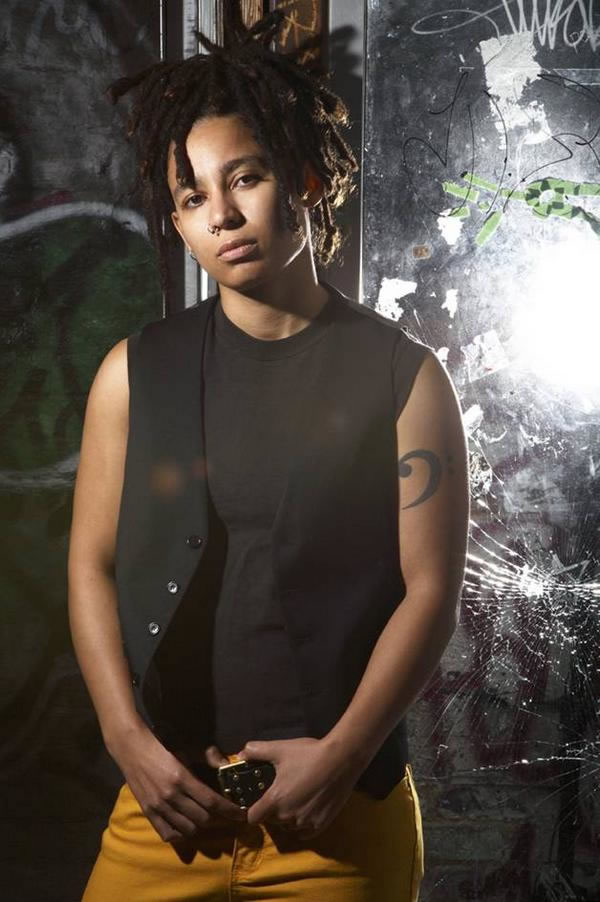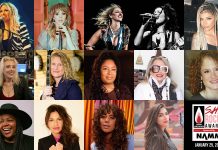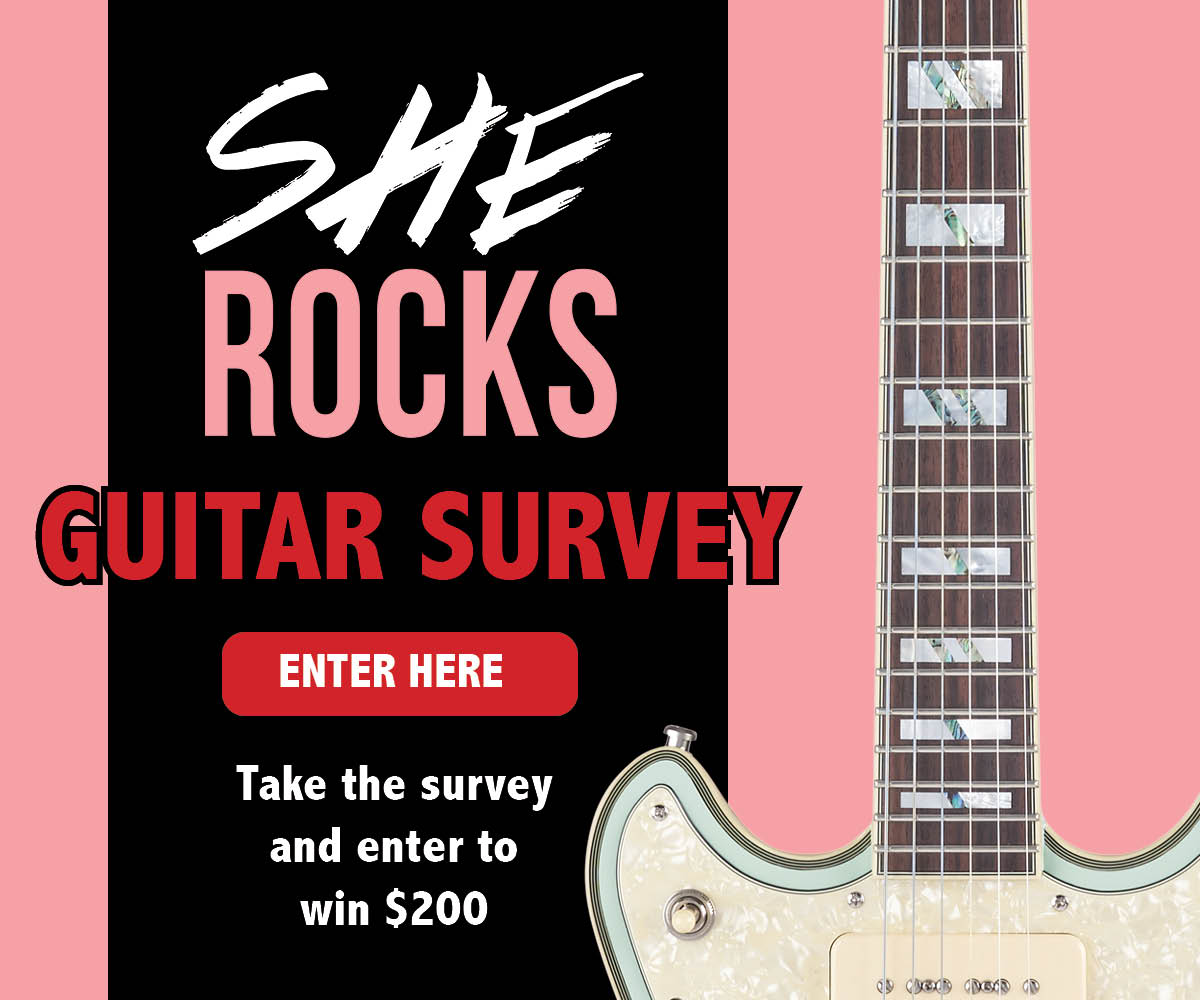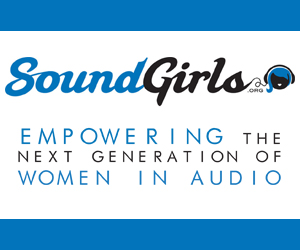The WiMN’s Front and Center is a weekly column that showcases accomplished women who work in the music and audio industries. We spotlight successful female performers, manufacturers, retailers, educators, managers, publicists, and everyone else in between. Want to be featured? Learn how here.
Front and Center: Sony Music Associate Director of Copyright, Tobi Parks
 An accomplished musician and businesswoman, Tobi Parks is currently the Associate Director of Copyright at Sony Music Entertainment, where she handles copyright, music licensing, and rights negotiations for the Columbia and Epic labels.
An accomplished musician and businesswoman, Tobi Parks is currently the Associate Director of Copyright at Sony Music Entertainment, where she handles copyright, music licensing, and rights negotiations for the Columbia and Epic labels.
In addition to her work with Sony, Parks has enjoyed an extensive career as a bassist. Her résumé includes solo performance and session work with well-known acts like Cyndi Lauper and Margaret Cho, in addition to collaborations with her own bands Bambi, The Star Death, Is That You?, and Grandpa’s Ghost.
The scope of Parks’ expertise and talents stretches beyond the music business. She also lectures nationally on the topic of media literacy issues, specifically regarding minority representation in media.
We’re honored to feature Tobi Parks for this thought-provoking interview. Find out more about her work at Sony here, and check out her band Bambi here.
WiMN: How did you get started in the music industry?
TP: I initially started by playing guitar as a teen. At age 15 I started gigging in small-town-bar cover bands, where I was playing with dudes in their 20s and 30s. While majoring in audio production in college, I interned with Interscope Records, worked at a local record store chain, and was the program director of my college radio station. This led to me working as a promotions & programming associate at a local Clear Channel Urban Radio cluster.
From Clear Channel, I went back to get my master’s in media literacy and took over the same campus station as general manager. I also taught classes in radio production as adjunct faculty. After wrapping up my M.A., I moved to N.Y.C. where I worked for a PBS-syndicated news magazine called In the Life as their director of community relations and marketing. I did a little scoring for that show plus a few independent films, which led me to decide to quit my 9-5 and pursue music full time.
Unfortunately, I’m not much of a risk-taker and I like having a steady income. So about two months into my experiment, I reached out to a friend that could get me a temp gig where I could do some mindless work, perhaps make some connections, and still have my primary focus on my music career. Well, nearly 7 years later, I’m still here!
WiMN: Tell us about your role as an associate director at Sony Music Entertainment. What is a typical day at work like?
TP: I’m the associate director of copyright at Sony Music where I lead a team that handles copyright and publishing-related matters for two of Sony’s labels, Columbia Records and Epic Records. Essentially, we acquire the necessary rights from songwriters and publishers for Columbia and Epic to exploit the recordings they make.
Back in the day, this was a much simpler task as it was generally a practice of reviewing an artist contract, getting a grasp of the mechanical royalty language and doing the mechanical royalty calculation of an LP, CD, or cassette for the label so they knew what their mechanical obligations were.
Now, in the days of online marketing, digital video streaming and new media, the job of the copyright team has grown exponentially. Unfortunately, U.S. copyright law is a fairly complicated web that only provides statutory rates for certain types of exploitations and requires others to be negotiated. Therefore, it requires direct negotiation of rights for the vast majority of digital deals we do, which stretches from a basic video on VEVO to negotiating deals for a mobile app.
Beyond the general day-to-day licensing and rights acquisition, there are also heavy technical aspects of the job, which include significant data analysis, systems development, and copyright royalty accounting functions.
WiMN: With your extensive background in copyright and music licensing, what is one piece of advice you’d offer to up-and-coming artists?
TP: The primary piece of advice I would offer is learn the business! Don’t be satisfied with just making music and thinking that everything else will take care of itself once you have a recording deal in place or get some kind of synch placement. Understand all aspects of the business, READ YOUR CONTRACTS, ask questions, know what you’re getting…but even more importantly, know what you’re giving up.
WiMN: You’ve written and lectured nationally on media literacy issues. How do you feel women and minorities are represented in the media in 2013? Have things gotten better? Worse?
TP: This is always a bit of a complicated question. Things have definitely gotten better, but there is always room for improvement. Most media makers have limited amounts of real estate to establish ideas, which forces them to rely on stereotypes or quick remedies to establish characters and themes. Unfortunately, this can often lead to marginalized and fairly simplistic representations of what is a very complicated and complex fabric of identities.
When one looks at newer online-based programming like what Netflix has created with “Orange Is The New Black,” for example, you see an assortment of different characters, populations, and identities represented in fairly nuanced ways. The show definitely takes some short cuts and isn’t perfect, but I think due to the more open platform of what Netflix has created and their ability to rely less on the traditional revenue models of broadcast television (i.e., advertisers), they can produce programming that is far more diverse and more accurately representative.
I think as original programming starts to trend more toward online and premium cable platforms, we will continue to see more flushed out character development and fewer stereotypes. The same holds true for music. The fact that musicians and artists are less reliant on major labels to produce and distribute their music has allowed for a broader and more diverse range of content for the music consumer. Music fans can seek out artists that speak more directly to them, their experiences, and their personal identities. In the process, these online communities come together to support those artists.
I’m a product of that myself. In the early days of the Internet (I know I’m dating myself here), I was turned onto the message board of Chainsaw Records. Chainsaw was the zine and indie label ran by Donna Dresch of Team Dresch. It exposed me to music made by women and queers that spoke to me. If you were a queer, female musician playing rock or punk in the early ’90s, there were very few bands or artists put out by mainstream labels that really mirrored your experience. Not only did Chainsaw expose me to music I loved made by people like me, but I was also linked into this amazing community of like-minded people from all around the world. Without that online community, I’m not sure we would have really seen the explosion and mainstreaming of the so-called “girls rock” movement like we’ve seen over the past 10 to 15 years.
As consumers, we have to hold media makers accountable for their messages while also being thoughtful about what we take in and the messages we’re taking away from our consumption. All this to say, the best way to create better content is to either create it yourself or stop taking in content that further perpetuates negative stereotypes or images. Be an active participant in your media engagement!
WiMN: Can you tell us about some of your experiences as a bass player? Who have you played or toured with and are you still actively playing?
TP: Yes, I am still actively playing, though my role as a mom of two has slowed my playing down somewhat. I’ve done some work with the Cliks, Cyndi Lauper, and Margret Cho. However, the bulk of my playing has been with the various bands of which I’ve been a member like Bambi, The Star Death, Is That You?, and Grandpa’s Ghost.
In terms of my experiences, I have to say that I’ve not really had many challenges of which I was overtly aware for being a female bass player. I guess the biggest assumption is that people see a female bass player and assume she’s playing bass because it’s easy or she can’t play guitar or some other instrument. Not to boost my own ego here, but that assumption falls away pretty quickly once I start to play. 🙂
Honestly, I’ve been fairly lucky that I’ve not gotten a lot of flak for being a female musician. I don’t have a ton of those horror stories that some women have. I assume partly that has to do with my overall gender presentation. I would label myself as fairly androgynous or even masculine-leaning. Therefore, I don’t think I get a lot of the same push back as more feminine women may get. I’ve always been treated as “one of the guys” for better or for worse. Who knows what may be being said about me when I’m out of the room, but I do not feel like I’ve been overtly discriminated against for being female.
I think men and women may approach music differently, which can create some conflicts in band situations but not inherently because women don’t have penises. I’ve noticed that men tend to, perhaps, be a bit more competitive and domineering, not only with women, but with other men also. This may be a total stereotype, but I think women tend to be better at collaboration than men, which can lead to more harmonious and less competitive band situations.
I’ve been lucky that most all the folks with whom I’ve worked, male or female, have generally been pretty great. Honestly, I think I may get more curious responses from people because I’m mixed race (read as black) and playing rock music–sometimes incredibly heavy rock music–than I do for being a woman. The bottom line is that if you’re a true player and know your stuff, no one seems to care about the package in which you come.
WiMN: Who are some of your female role models in the music industry – artists or otherwise?
TP: This is a tough question because I have many. As a musician, I’d have to say Meshell Ndegeocello stands out as a primary role model and influence. She’s somehow managed to handle being a parent, a musician, and a black female artist while making music that is truly inspired and seems to grow sonically with every record. You can’t pin down her sound and I love that!
I’ve also been heavily influenced by all the women I’ve played with through the years. The women in the band The Star Death were HUGELY influential in my development as a musician, an artist, and as a person. I can’t even begin to describe the impact those women, and that band, have had on my life. I also love a lot of female queercore bands like Team Dresch and the Need. I think Donna Dresch is totally undervalued as an iconic figure that helped blow the doors open for women and queers in music. Not only is she a rad bass player, but she’s also a business woman that ran the label that put out the first Sleater Kinney record, plus records from the Butchies, The Need, and others.
From a business standpoint, I’ve had the privilege of working with a number of amazing women. I suppose the woman that has had the biggest direct impact on me is Andrea Finkelstein, the senior vice president of business affairs operations here at Sony. Andrea is one of the toughest women I know in this industry and is not afraid to take on challenges…and believe me, she’s taken on many. I’ve learned so much from her and how she’s navigated the business and continues to work within it. She’s been with Sony for 25+ years and is such an integral part of what happens here from a business perspective. I’m very lucky to have her as a mentor.
WiMN: Can you share your experience as a woman in the industry? Have there
been challenges?
TP: As I mentioned before, I’ve had a fairly good experience working as a woman in the industry. If anything, I think I might get more raised eyebrows because I tend to look young and dress a little funkier than the standard corporate type. I’ve not felt held back here because of being a woman, but environments may differ with the various companies or divisions. I’ve had a great experience and can honestly say it has been great working for Sony and particularly with my two labels (Columbia and Epic). Again, it goes back to what I said earlier: in my experience, provided you know what you’re doing and you’re competent, most people forget about the packaging pretty quickly…
I will say, however, I’ve struggled personally finding balance with being a musician, a business professional and a mom. Finding balance in all those roles has been incredibly difficult though I don’t know if that is a uniquely female experience, unless you’re actually the woman giving birth to a child–which brings a whole other level of complication–of which I did not have to experience (thankfully!).
WiMN: Any words of encouragement for women aspiring to enter the music industry?
TP: Words of encouragement . . . hmmm . . . just learn as much as you can. This industry feels like it changes on a daily basis and it’s hard to keep up with what is happening and I work in it everyday. Talk to people, network, don’t be afraid to ask questions or approach people. Though, I will caution that there is a fine line between being forward and confident versus being annoying and overly persistent. Walk that line carefully. 🙂
It’s true that this business is all about relationships. Most people are open to giving advice and giving a helping hand if they know you’re hungry, you show a desire to learn, and that you are serious about your work.








